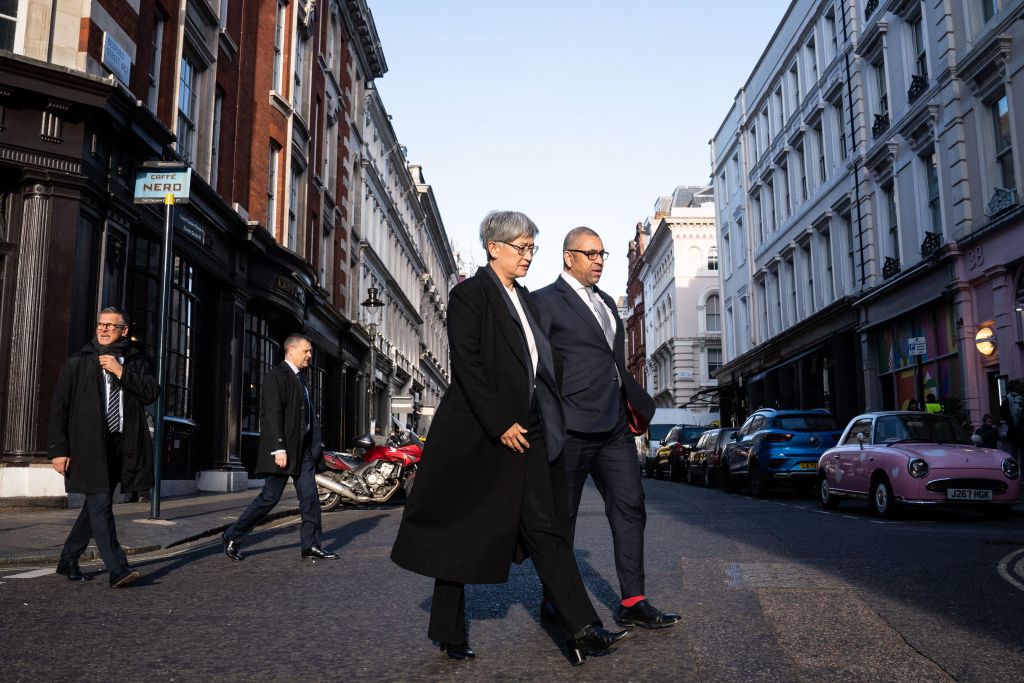


Penny Wong’s controversial comments on Britain’s colonial history have caused “no sense of discomfort or diplomatic tension,” a senior official within the Australian foreign minister’s department said.
In a Senate Estimates Committee hearing on Feb. 16, Jan Adams, the most senior official at the Department of Foreign Affairs and Trade said that while Wong’s comments in the context of modern Britain were “unexceptional,” it was not the mainstay of the discussions.
“There was no sense of discomfort or diplomatic tension whatsoever. I can say that with complete confidence,” Adams said.
In her speech to the King’s College in London on Jan. 31, Wong said that the United Kingdom needed to deal with its colonial past so that it can strengthen ties with countries in the Indo-Pacific.
Wong spoke of how Australia eventually developed its own identity separate from the one it had as a British colony.
“It gives us the opportunity to find more common ground than if we stayed sheltered in narrower versions of our countries’ histories. It helps open the world to us. It helps open the Indo-Pacific to us,” she said.
“Today, as a modern, multicultural country—home to people of more than 300 ancestries and the oldest continuing culture on Earth—Australia sees itself as being in the Indo-Pacific and being of the Indo-Pacific.”
Wong has sought to “challenge disinformation” from the CCP, particularly from the CCP’s acting ambassador to Australia who previously described the AUKUS deal between Australia, the United Kingdom, and the United States as an “Anglo-Saxon Clique,” reported Reuters.
The foreign minister said projecting Australia’s multicultural image was about increasing its influence and power in the Indo-Pacific—which is important in the context of AUKUS and the QUAD deal with Japan, India, and the United States.
Part of the effort by Western governments, such as Australia and the United States, includes building stronger relations with Pacific Island nations, many of whom were former colonies of Western nations.
For instance, in September 2022, the United States held its “first ever” U.S.-Pacific Island Country Summit in Washington D.C. where it sought to reverse Beijing’s encroaching influence in the Indo-Pacific region.
In her speech, Wong said that if conflict were to break out in the area “it would be catastrophic—for our people and our prosperity.”
“And with the Indo-Pacific’s centrality to global prosperity and security, the cost would extend far beyond us and reach into every region.”
Yet Greg Sheridan, a veteran in international affairs wrote in an op-ed in The Australian newspaper that Wong’s speech was one promoting identity politics, which “rewards confected victimhood, endlessly seeking out new villains to demonise, or old villains to demonise in new ways.”
“It was the worst and strangest speech of her life and deserves more attention. Combined with equally odd comments from Anthony Albanese linking the proposed constitutional change to establish an Aboriginal Voice to Parliament with foreign policy, these are disturbing signs that the intellectual cancer of identity politics is seeping into the government’s foreign policy,” Sheridan wrote.
When asked by the opposition’s Senate leader, Simon Birmingham, what she thought about Sheridan’s op-ed, she said that while she had high regard for the author, she would “tell him to relax.”
“I maintain my view that working on how we maximise Australian influence, including in how we speak about who we are and recognise where others are, is a central part of the job of anyone in this role.”
Meanwhile, Eric Louw, former member of the African National Congress, wrote in an op-ed published by The Epoch Times that the colonialism label has often been used by current leaders of underdeveloped countries—many with poorly run economies—to detract from the day-to-day governance and corruption issues.
Such labels, including the argument that Pacific nations are the victims of climate change caused by the developed world, has also been exploited by Beijing to win the influence battle over developing nations, Louw said.
Meanwhile, when asked whether the UK had satisfactorily confronted its colonial past after Wong’s speech, Britain’s foreign secretary, James Cleverly said “You’re asking the black foreign secretary of the United Kingdom of Great Britain?” reported the Sydney Morning Herald.
“Yeah, I think the answer is yes—you’re looking at it, you’re talking to it!
“I mean, the bottom line is we have a prime minister of Asian heritage, you have a home secretary of Asian heritage, you have a foreign secretary of African heritage.”
Cleverly added that while history mattered, “what matters more is the stuff we can do in the future.”
“What I’ve found as the UK’s foreign secretary, dealing with countries around the globe, they are really keen to work with us and to focus with us on the opportunities of the future, so I’m going to stay very much future focused and I think that the classic example is the relationship that I’ve got with Penny Wong,” he said.
“We’re both mixed heritage, representing our respective countries, working together for the greater good.”
Daniel Y. Teng contributed to this report.
